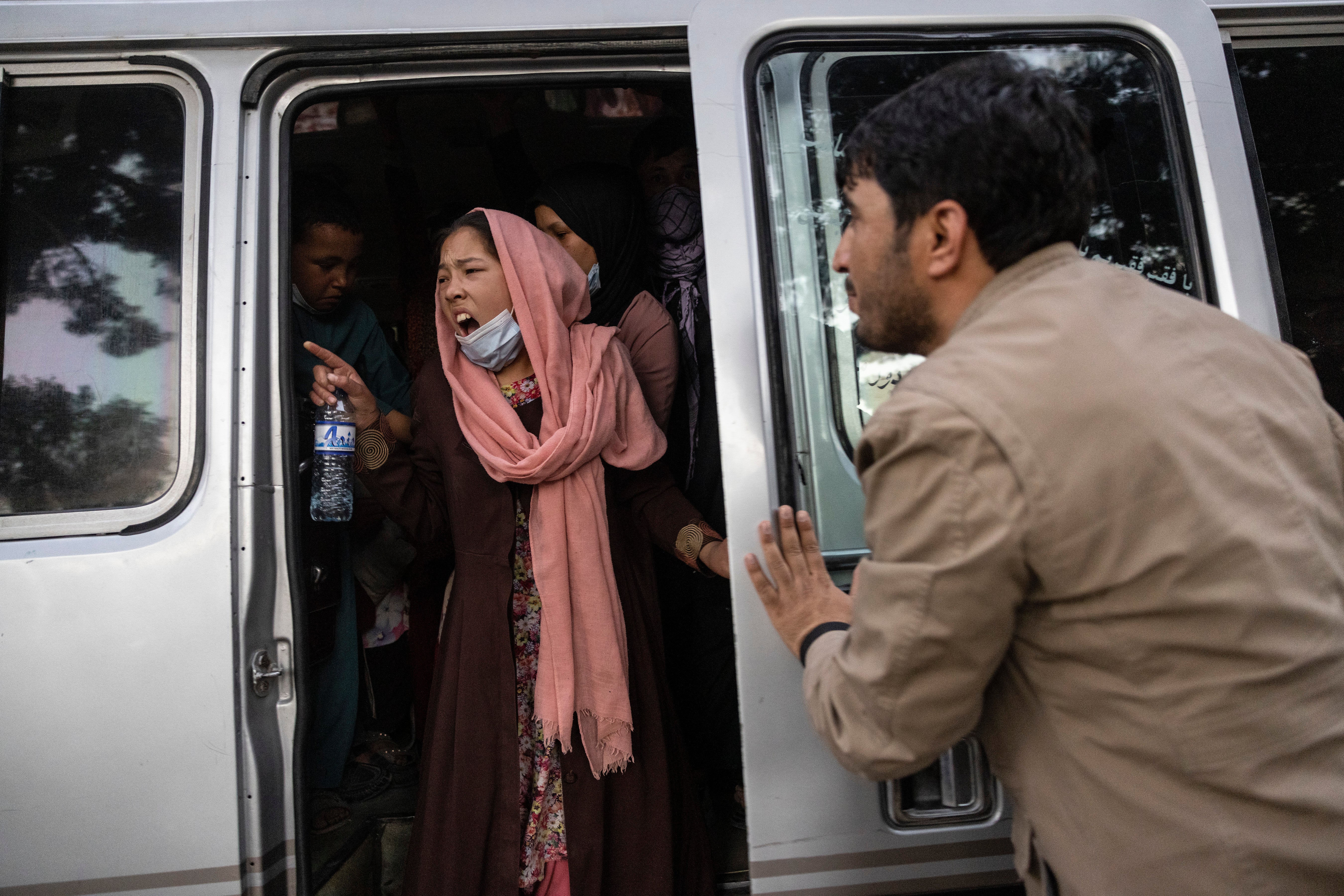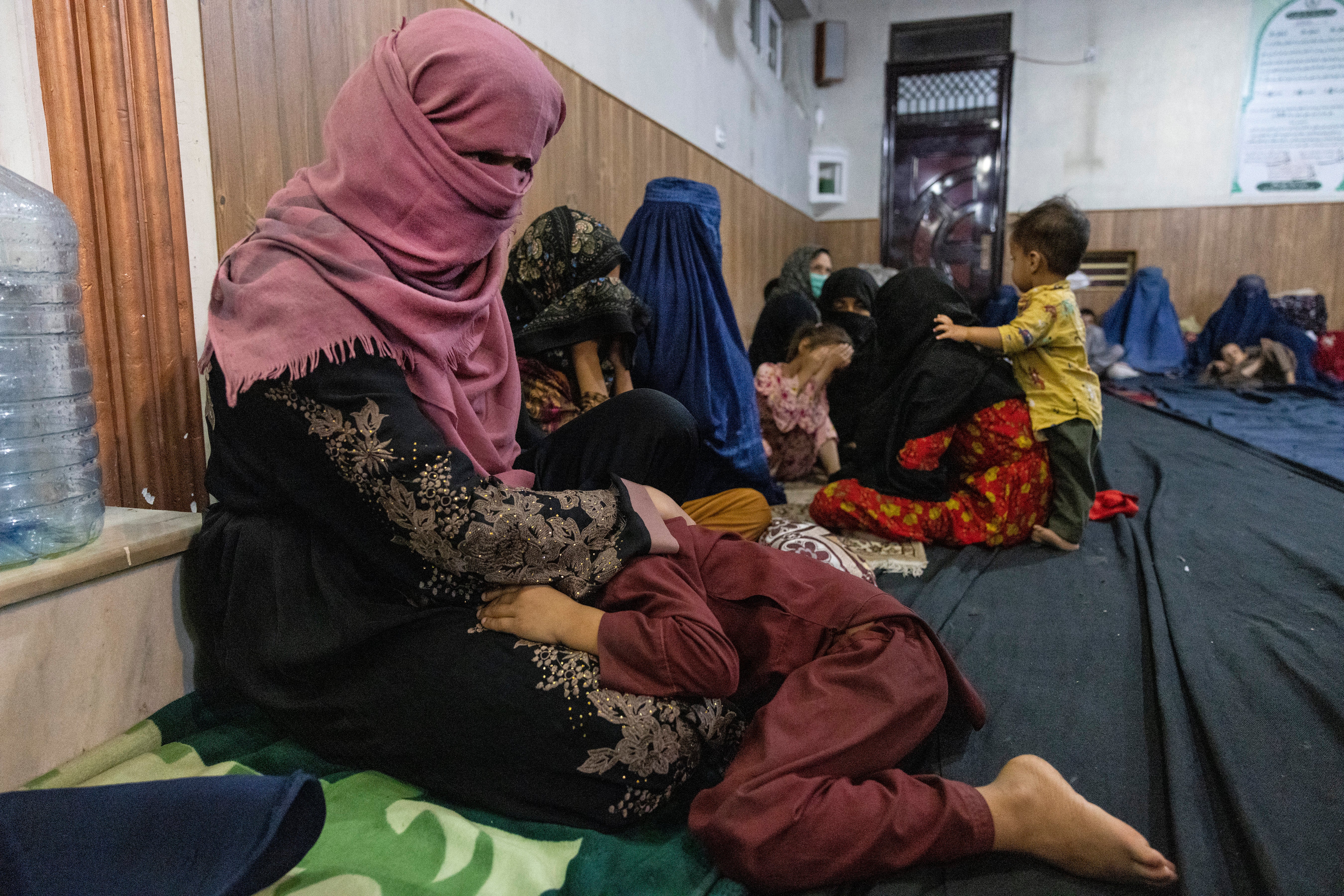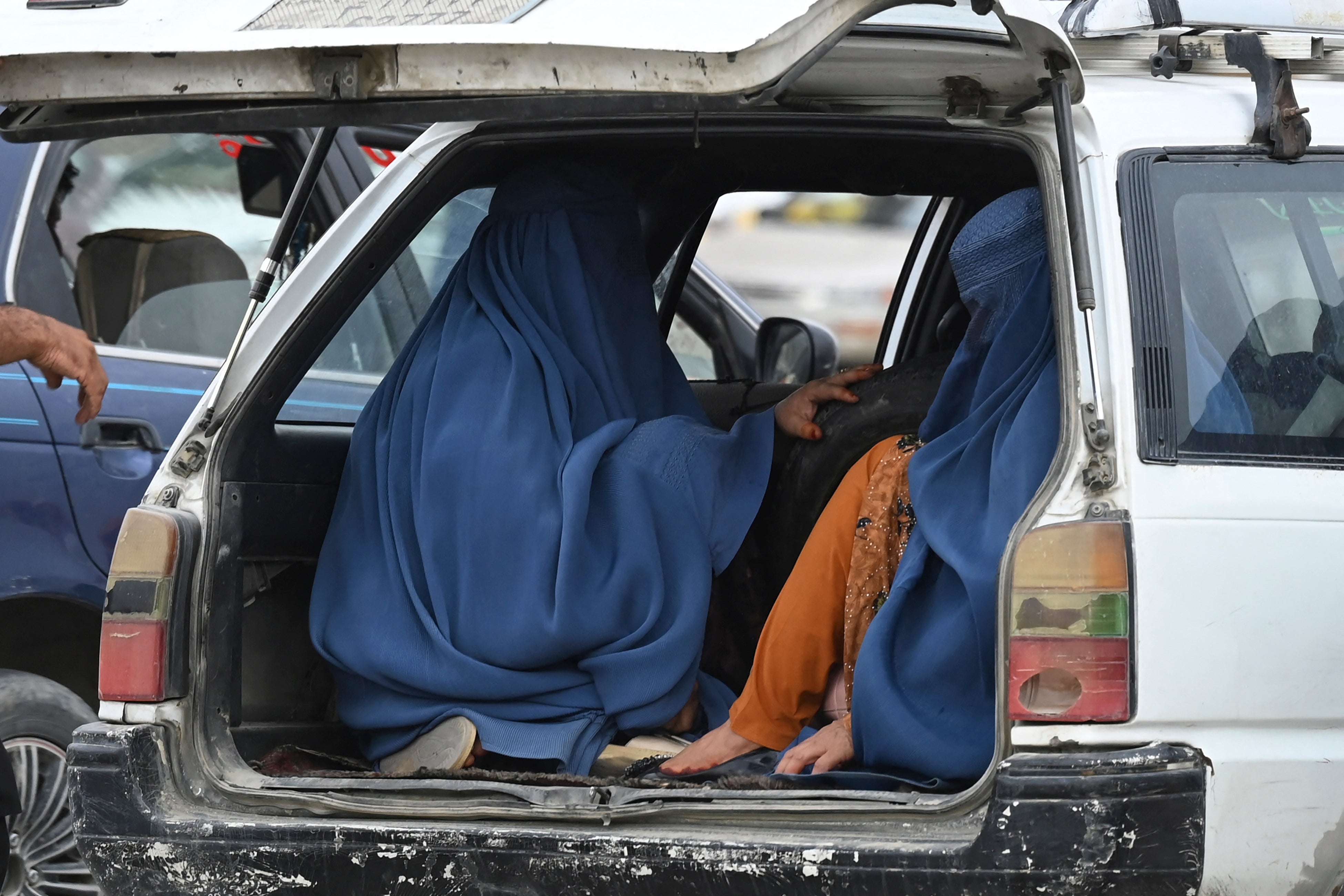‘Prisoners in homes’: The women in Afghanistan barred from leaving home without a man
Exclusive: ‘Women are being told they can’t leave their house without a mahram, which is a male family member. Women are being forced out of their jobs,’ says expert

Your support helps us to tell the story
From reproductive rights to climate change to Big Tech, The Independent is on the ground when the story is developing. Whether it's investigating the financials of Elon Musk's pro-Trump PAC or producing our latest documentary, 'The A Word', which shines a light on the American women fighting for reproductive rights, we know how important it is to parse out the facts from the messaging.
At such a critical moment in US history, we need reporters on the ground. Your donation allows us to keep sending journalists to speak to both sides of the story.
The Independent is trusted by Americans across the entire political spectrum. And unlike many other quality news outlets, we choose not to lock Americans out of our reporting and analysis with paywalls. We believe quality journalism should be available to everyone, paid for by those who can afford it.
Your support makes all the difference.“We are lost and confused and hurt,” a woman rights activist, currently trapped in Afghanistan, says. “As you can imagine, in this fight between egotist men, it is women and children who get affected. Pray for us.”
The campaigner, who cannot be named as she is well-known by the Taliban, so could be targeted for speaking out, is based in the capital of Kabul. A city which has been catapulted into chaos since the Taliban seized control on Sunday. A city which people are so desperate to escape that they have been attaching themselves to moving aeroplanes departing from Kabul airport.
“Things are bad,” the activist adds. “They are very bad, unfortunately. We are stuck between a rock and a hard place. I can’t see the suffering of my people anymore. Our hearts break. People come to Kabul from provinces in the worst possible condition. I wonder when Kabul falls where we will go.”
She says the Taliban has come to seek “revenge” this time - warning they have lists of activists who they have been killing since capturing Afghanistan. “Panic is real,” she adds. “Embassies are closed, so even those who want to, and can afford to, won’t be able to leave.”
Since American troops began leaving Afghanistan in May, the Taliban has steadfastly invaded. Women are fast becoming some of the worst casualties in Afghanistan with reports of them being forced to marry fighters, quit their jobs and remain at home, as well as enduring public flogging.
“Single-sex women and girls schools are being closed,” Heather Barr, of Human Rights Watch, tells The Independent.
“Women are being told they can’t leave their house without a mahram, which is a male family member. Women are being forced out of their jobs. These are women working as professionals who have trained for a long time. They are turning women into prisoners in their own homes.”

Ms Barr, who is associate director of the women’s rights division at the leading charity, explains the Taliban are telling local employers they must permanently send female employees home and get men to do their jobs.
“The Taliban haven’t changed,” she adds. “There is no Taliban 2.0. They’ve tried to say there is sometimes. But if you look at their action on the ground, the evidence isn’t there. Since the US announced departure, the Taliban has been more and more triumphant and grabbing more and more territory. What follows is the abuse of women and girls.”
The campaigner, who is a former Afghanistan researcher, has been up all night due to fielding constant calls from friends currently trying to escape Afghanistan. Several people she knows are currently stranded at the airport, while one has fortunately managed to flee.
“Everyone is terrified,” Ms Barr adds. “Everyone is fleeing. The airport is a disaster. People are running to stop planes going, or running to crawl onto it. There have been shootings there. One of the people killed was a woman. I have friends helping women athletes, women journalists, women from the army, and women’s rights activists escape.”
The airport is filled with thousands of people who have gone there with no tickets desperately trying to find any way they can to escape. To make matters worse, people in Kabul airport were left terrified after reports the Taliban gained control of the civilian side of the airport in the early hours of Monday morning, Ms Barr adds. This is because many people in the airport were likely to be human rights activists who are known to the Taliban so are therefore trying to flee, she explains.

“Everyone is frightened,” Ms Barr explains. “Everyone is hiding indoors waiting to see what is going to happen next. The sad part is a lot of people in Afghanistan have been through this before. There are so many different stages to the conflict after so many years and generations. So many people are running and are hiding. Women are very afraid.”
Experts around the world are greatly fearful some of the hard-fought rights Afghan women have won in the two decades since the Taliban were defeated could be rolled back. Women were blocked from working and girls were barred from going to school when the Taliban last ruled the country between the mid 1990’s and 2001. While women had to be chaperoned by a male relative if they wanted to leave the house during this period.
Fereshta Abbasi, an Afghan human rights watch, tells The Independent she is in a massive state of shock about the situation currently engulfing Afghanistan. She has very close family members who are currently stranded there.
“There are countless Jo Cox’s in Afghanistan and regions like that. Women in the public realm face abuse, threats and violence.”
“I feel useless and hopeless as there is no way to get them out,” she adds. “I’m very emotional because I’m still in shock. I cannot believe what has happened. All of it happened so quickly which nobody expected. From the day they took over the first province to Kabul. Just nine days.”
Ms Abbasi, who grew up in Kabul and lived in the city until recently, says her heart aches for what is happening in the country as she explains the takeover of Kabul is the last thing she thought would happen.
“The Taliban don’t have a good reputation in preserving women’s rights,” the lawyer, who is currently based in the UK, adds. “In the 90s, women had no public presence. No voice.”

Female Afghan journalists and healthcare workers have been killed in a slew of attacks since peace negotiations started between the Taliban and the American-backed Afghan government last year. While the Taliban denies perpetrating these attacks, government ministers hold them responsible.
“The Afghan president, the army and ministers are in hiding or have flown out because they are targeted by the Taliban as collaborators with the US enemy,” Huda Jawad, who is co-founder of Musawah, a Muslim feminist organisation, says. “Whose left to hold the line? Women are left on the frontline as defenders of human rights but also women politicians are left there.”
She warned women living in Afghanistan’s lives are dominated by the perpetual need to do risk assessments for their own safety.
“When they are getting ready for work they have to think, ‘Who am I meeting today? What are their political and ideological views and how much clothing do I need to wear?’, Ms Jawad says. “Also, you have to think about how to avoid roadblocks and bombs. It is a minefield for these women.”
The campaigner also noted that Afghan women, like women around the world, have had to endure domestic abuse and sexual violence. While women working in politics must consider the reprisals their family could face before offering support for a policy or even just attending certain conferences, she adds.
“The things female MPs take for granted in the UK or the west are the stuff of dreams for women in Afghanistan,” Ms Jawad, who has worked in gender-based violence and anti-racism for over a decade, adds. “There are countless Jo Cox’s in Afghanistan and similar regions. Women in the public realm face abuse, threats and violence.”
Jo Cox, the Labour MP for Batley and Spen in Yorkshire in the north of England, was murdered by a far-right extremist in June 2016.
“If the point of the last 20 years was to get rid of Bin Laden, yes they have done that,” Ms Jawad says. “But if it is to enshrine freedom and equality, then it has been a dismal failure, Anyone else who says otherwise is gaslighting us. These issues predate the Taliban’s recent seizure.”




Join our commenting forum
Join thought-provoking conversations, follow other Independent readers and see their replies
Comments